News
Gen Z prefer natural, practical
29 Apr 2016Taught to make healthy choices from a young age, Gen Z college students take that lesson seriously when reaching for beverages according to a new survey from industry consultants Beverage Marketing Corporation (BMC) and Fluent

Taught to make healthy choices from a young age, Gen Z college students take that lesson seriously when reaching for beverages according to a new survey from industry consultants Beverage Marketing Corporation (BMC) and Fluent, a college marketing and insights agency. Practicality and natural products are preferred - while artificial ingredients and crazy fads are likely to cue a collective eye–roll, the researchers say. The survey of undergraduates is claimed to offer clear direction to those who make, distribute and sell beverages to Gen Z: keep it simple and know your niche.
"From early–kindergarten lectures to constant health–related headlines on their phones, this generation knows about having to proactively make their own choices and not just take things at face value," said Fluent EVP Michael Carey. "And while they reach for water first, there are opportunities for other beverages to fill niche roles, if they know where to look.""As Gen Z matures, there are exciting opportunities for our industry to engage with these consumers in a positive way," said Beverage Marketing Corporation Chairman and CEO Michael Bellas. "We look forward to sharing how companies can reinforce strengths and create new experiences by listening to what this newest and typically hard–to–access audience has to say."According to the survey the key takeaways are:+ Bottled water is THE top beverage purchase – 43% consume it 7+ times per week, with coffee (hot or iced, not specialty) next at 22%.Brewed tea was third at 12% in that category, and then beer at 9%. Hydration/thirst was the number one reason students pick up something to drink.+ Asked about future consumption, 42% plan to drink more bottled water and only 8% less of it, and 22% of students expect to drink more brewed tea, against 7% saying less. Barring significant innovation, soda is likely to continue its decline, with 33% planning to drink less against 3% to drink more. This correlates with recent data from BMC that finds bottled water is the second most popular beverage in the U.S., likely to overtake carbonated soft drinks' supremacy late 2016 or in 2017.+ While they find bottled water tastes better than tap water, 59% try to fill up water bottles and/or use a filtered water system on a regular basis. Still, nearly 20% of students rely solely on bottled water over tap or filtered, for many of the same reasons bottled water scores over other non–alcoholic beverages: It's healthier, more convenient and easier to find.+ Students read labels, 43% regularly and 38% at least sometimes. The top three descriptors influencing purchase are "all–natural" (52%), "low–calorie" (37%), and to a lesser extent, "organic" (36%), with "vitamin–enhanced" at 31% and "zero–calorie" at 27%.+ Around half of all students say they try to avoid artificial sweeteners, flavouring, preservatives, and high–fructose corn syrup. The sweetener they are most okay with is cane sugar (55%).+ The top reasons they try beverages? Students cite friends' picks (52%), "healthy/good for you" (49%), free samples (37%), interesting flavours (36%) and sale/ promotions (25%).+ Sports drinks have clear roles. 37% of respondents drink them for hydration and recovery, 14% drink them for taste, and 13% to quench their thirst. They drink them most often while working out (54%) vs. before or after, to combat hangovers (46%), then because they are thirsty (45%).+ Pick–me–up choices were campus classics. The top go–to beverage was coffee at 49%, and then brewed tea at 15%. Water tied for third at 13% with soda, which seems to be a key messaging opportunity for carbonated soft drinks – ahead of energy drinks (8%).+ 74% of respondents say they do consume alcohol and 81% of those do drink beer on occasion. Asked what they prefer most, beer had a slight edge, with it, wine and spirits somewhat equal.+ When it comes to mixers, students reach first for soda (37%), and then juice (35%), followed by seltzers (10%).The survey was conducted March 15 – 21, 2016 and polled 1,010 undergraduate respondents across the USA. A third were under 21 years of age, with data on use of alcohol reflecting demographics. Survey results will be published and put in context in a BMC market report entitled U.S. Student Beverage Consumption and Attitudes.Related news
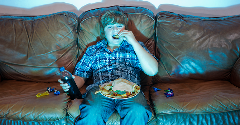
UK to ban junk food TV advertisements before 9pm
3 Oct 2024
In a bid to reduce childhood obesity, the UK government has introduced a policy, coming into effect on 1 October 2025, banning junk food advertising on television before the 9pm watershed.
Read more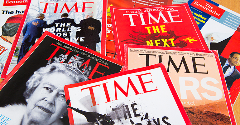
Which food and beverage brands made TIME’s Most Influential Companies list?
2 Oct 2024
Chickpea pasta, prebiotic sodas, food boxes, non-alcoholic beer, and a soil carbon marketplace are the specialties of the five food and beverage brands that earned a spot on TIME’s 2024 list.
Read more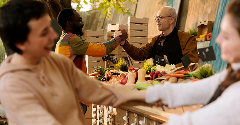
New environmental food scoring standards emerge
30 Sep 2024
EIT Food and Foundation Earth collaborate to launch environmental food scoring for products entering the global supply chain.
Read more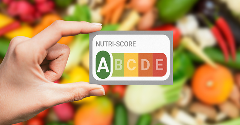
Danone removes NutriScore from products
20 Sep 2024
Following an algorithm update that gives some of its sweetened drinks a worse score, Danone has removed the front-of-pack label, NutriScore, from all of its products – putting profit before public health, say campaigners.
Read more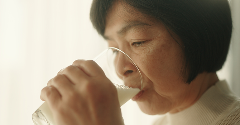
Nestlé develops a new fat reduction method for dairy ingredients
26 Aug 2024
A Brazil-based Nestlé research and development team has developed a way to reduce the fat in milk powder by as much as 60%, without impacting the key characteristics that consumers enjoy.
Read more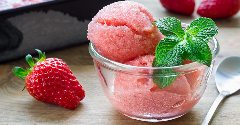
Better Juice expands its range to sorbets
16 Aug 2024
Food tech startup Better Juice has developed a technology to reduce the sugar content in fruit sorbets. The process retains the natural vitamins, minerals, and flavours of fruit, while offering manufacturers an easy-to-implement and scalable solution t...
Read more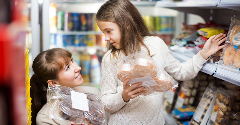
German study reveals high sugar, fat, and salt levels in children's foods
13 Aug 2024
The food industry is making slow progress in reducing the high levels of sugar, fat, and salt in German food and beverage products marketed to children, according to the Max Rubner Institute (MRI).
Read more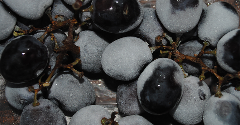
Swedish court overturns prohibition on winery’s use of imported frozen grapes
12 Aug 2024
Swedish company Drood Winery has successfully challenged the Swedish Food Agency’s decision to prohibit the production and sale of their product made from frozen grapes imported from Iran.
Read more
Paris Olympics: Food and beverage brands champion health, fun, and sustainability
5 Aug 2024
Food and beverage brands are aligning with the Paris Olympics 2024 Food Vision, which emphasises sustainability, local sourcing, and plant-based diets.
Read more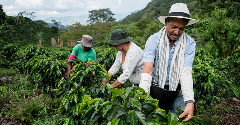
The coffee supply chain is failing farmers, says Solidaridad
30 Jul 2024
The coffee industry’s economic model means its profits do not reach farmers, despite there being enough value to be shared all along the supply chain, according to a new report by Solidaridad Network and IDH.
Read more